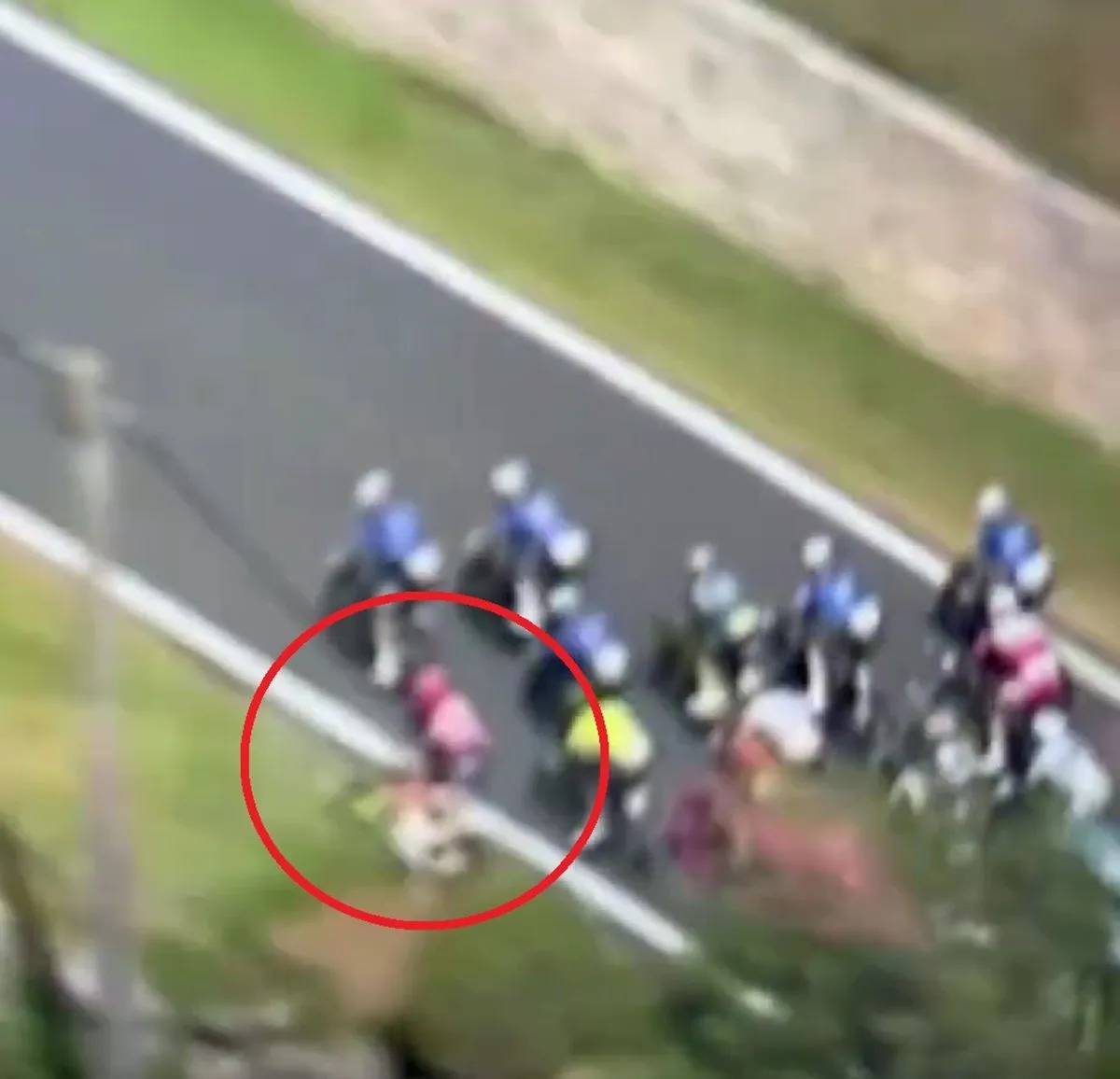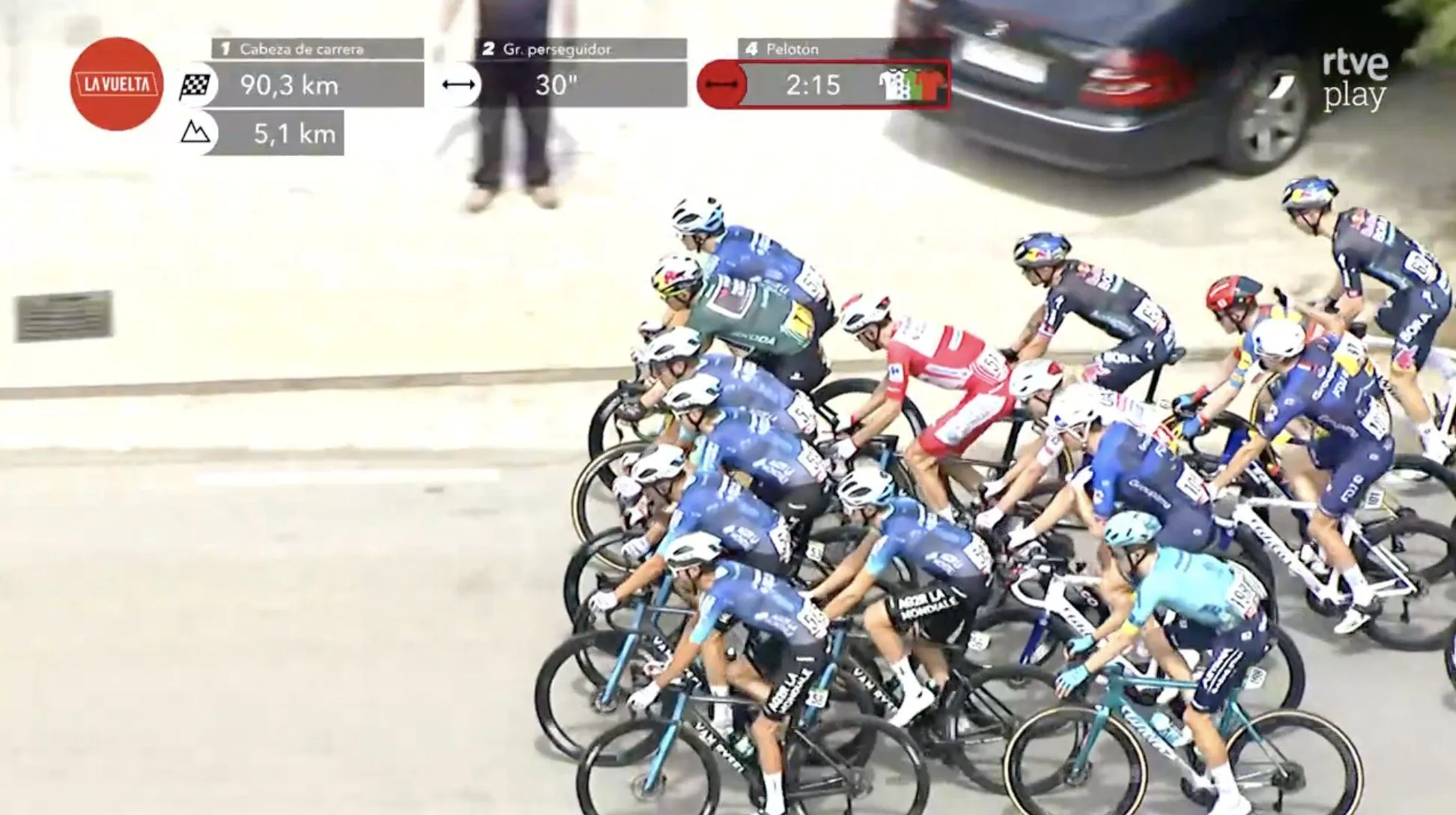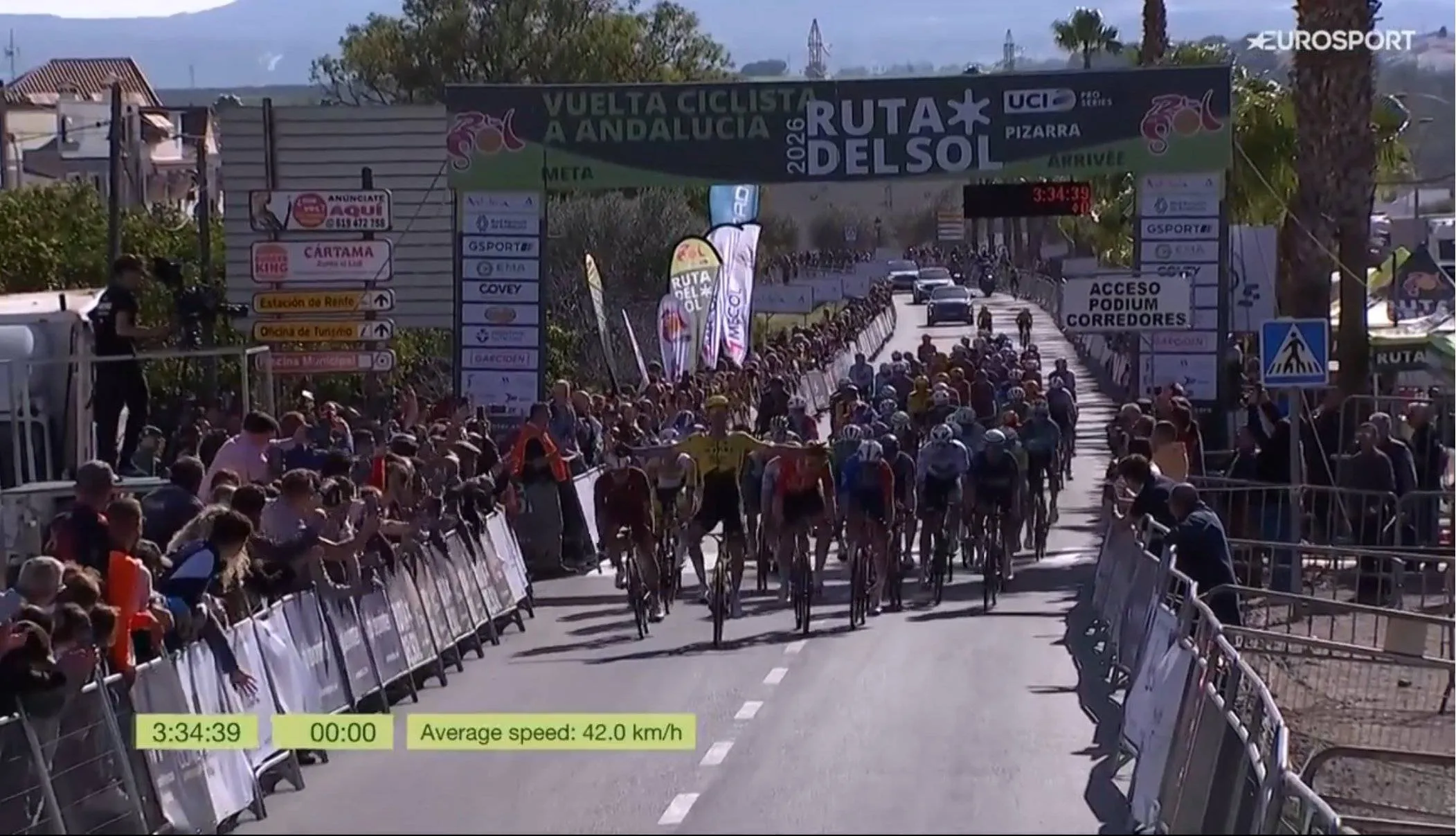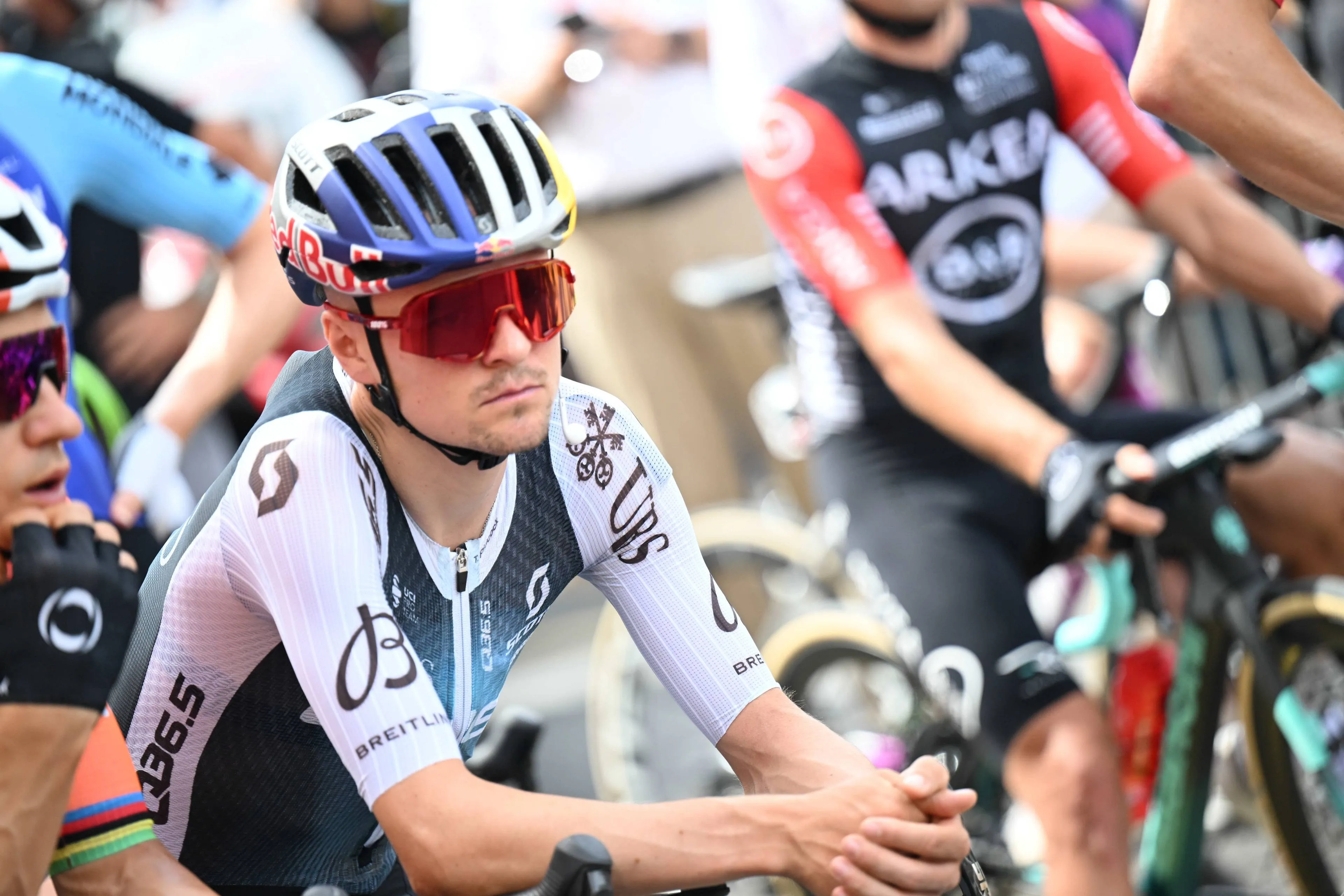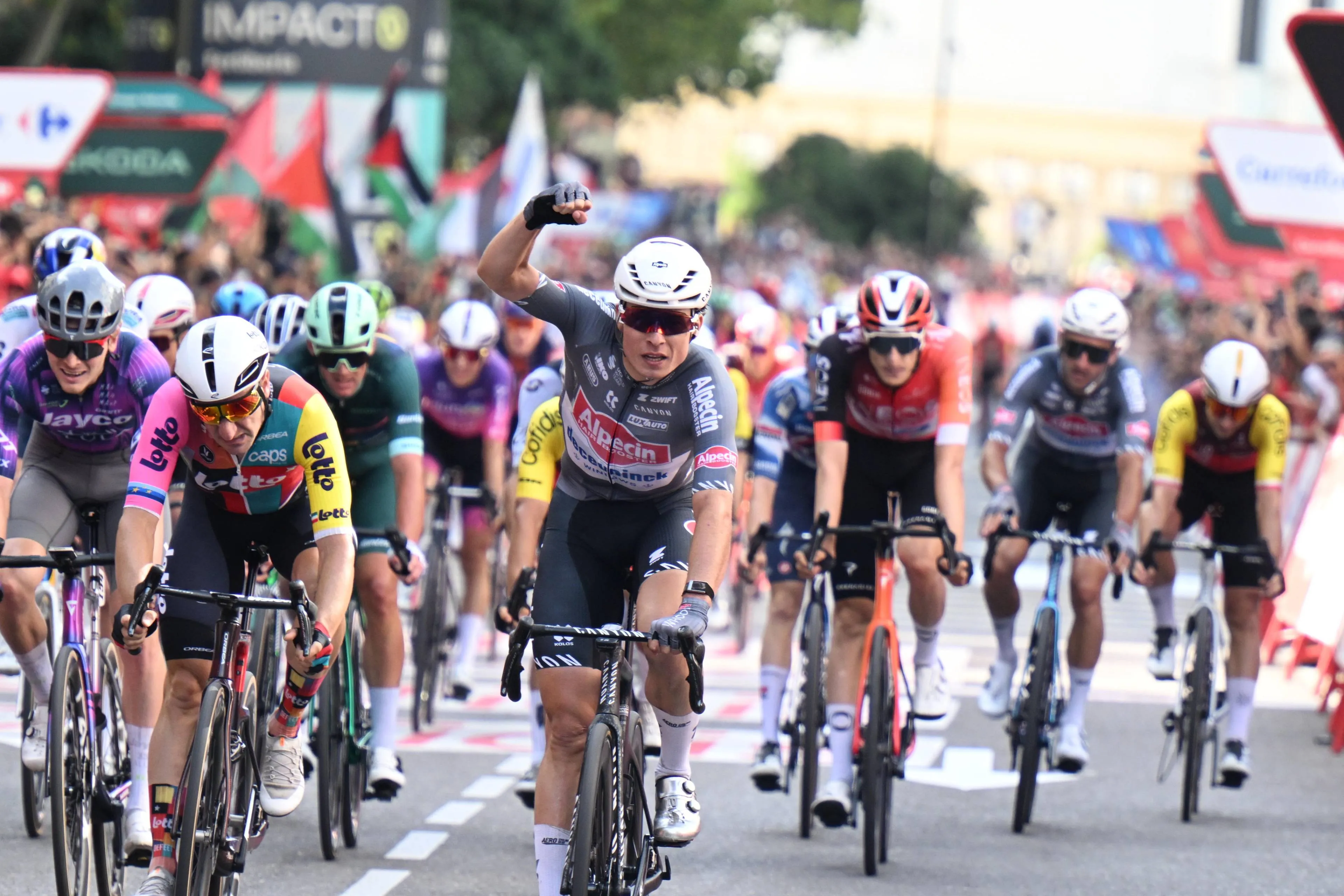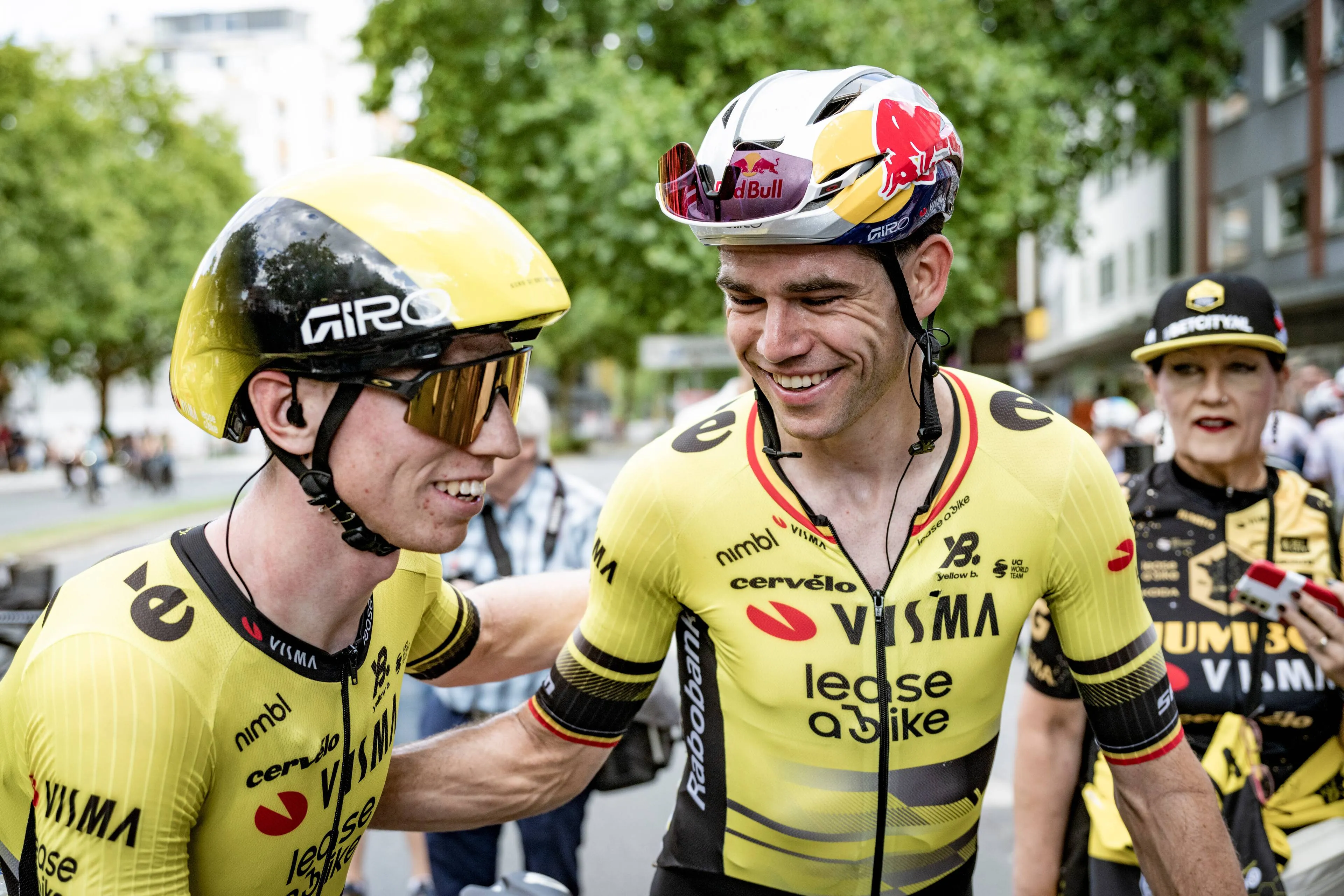Michael Rasmussen points out at loopholes at UCI's new yellow cards and that riders "can take advantage of" some uncertainties
CyclingSaturday, 31 August 2024 at 05:30

There was a lot of talk after the eleventh stage of Vuelta a Espana, where the race jury decided to distribute yellow cards to three Decathlon AG2R riders who tried to block the road after a breakaway had pretty much established, but due to their actions, Richard Carapaz who wanted to make a late attempt to cross to the front along a teammate, was sent off the road and crashed. While the ruling was completely in line with UCI guidelines, there are still mixed feelings about the yellow cards.
"They are groping a bit blindly, I think. Immediately, I do not think that there is a need for more regulations and more rubber rules," says Michael Rasmussen as Ekstra Bladet's expert. He believes that the commissaries should take action in any case of misconduct - yellow card or not. "It sounds like something unnecessary. After all, the offenses have been punished until now."
Read also
Rasmussen doesn't see the addition of yellow cards a game-breaker that would make the racing very safer. "For example, Gianni Moscon has been thrown out of the Tour for hitting people or trying to run them off the road, or whatever crazy streaks it may have been."
It's quite clear that misconducts such as those of Decathlon AG2R riders' action against Richard Carapaz will be penalized with a card. But so are other various such as littering outside designated areas or using prohobited rider positions on the bike, such as the supertuck in the descent which was previously resulting in a direct disqualification. The last part bothers Rasmussen "because it is something you can take advantage of."
"If you go down in the supertuck position, and you know that it is an advantage, but that it only triggers a yellow card, then you can play with the idea of exploiting it. It's a strange thought to play with: 'We have room to take someone like that on the way down the Galibier, because the shit is on fire.' I don't know if the UCI has thought about it. Otherwise, at least they have to deal with it as well."
Read also
claps 1visitors 1
Just in
Popular news
Latest comments
- I just hope that he just says that he got cramps and that's it, rather than some long-winded excuse which makes him seem even more of a piece of...
 Rafionain-Glas18-02-2026
Rafionain-Glas18-02-2026 - finally, a team that does something smart. I could never understand why Ineos would like Egan train as he did alone. put a motorbike behind him with an earpiece to call out issues above. same with remco crashing into a postal truck.mij18-02-2026
- Wow, that is not a good sign for Remco. Great win for Tiberi!Pedalmasher18-02-2026
- Great champion Remco but his profile is more suitable for Ardennes-like races and tour with no very hard climbs. Not only Tadej and Vingegaard, there are a lot of younger cyclists (del Toro, Ayuso, maybe Seixas, Nordhagen and others) that will soon be big GC boys.
 maria2024202418-02-2026
maria2024202418-02-2026 - Evenopoel 1st real test, and he failedZamorano18-02-2026
- Remco is not the natural climber that riders like Tadej or Jonas are, no matter how much he trains and prepares for it. Yes, you can TT your way up moderately steep hills, but when the gradient gets super steep, he just can't keep up.
 santiagobenites18-02-2026
santiagobenites18-02-2026 - So against the better riders and a long mountain, Remco cracked. Sorry but way away from Pog and Jonasabstractengineer18-02-2026
- “I was portrayed as the devil" Bruyneel was really a talented team manager. His minor flaws: "coordinated, well-funded, and sophisticated doping regime" "hand-in-hand in implementing the team-wide doping programme" "was involved in trafficking and administering prohibited substances and methods, including EPO, blood transfusions, testosterone, human growth hormone, and cortisone. Teammates testified that nothing significant happened without Bruyneel's knowledge and approval." "fostered an environment where doping was considered a "fact of life" and necessary for success, effectively making it a condition of survival on the team. He also participated in or assisted with the cover-up of positive tests and doping violations." Those quotes show Bruyneel's true talent.Cyclingnut18-02-2026
- Fed up hearing "their" voicesslappers6618-02-2026
- When you join Ineos , learning , time , no pressure go out of the windowabstractengineer18-02-2026
Loading
Write a comment
